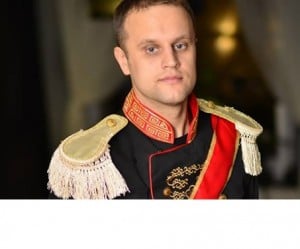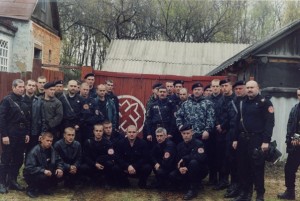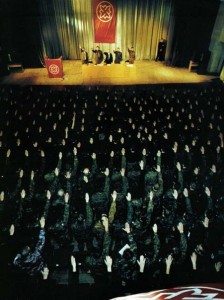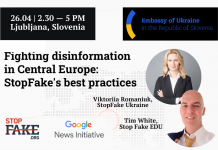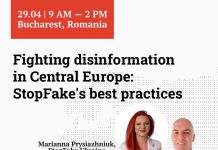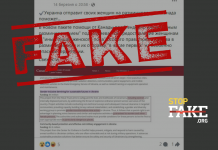The biggest narrative of the Russian media regarding Ukraine is that Ukrainian pro-European protesters, who toppled the regime of Viktor Yanukovych, are en masse ultra-nationalists or fascist. The terms used in Russian news are “radicals”, “ultra-radicals”, “fascist youngsters”, “militants” etc. These people, the official Russian narrative goes, are trying to spread the “fascist plague” to the Eastern Ukraine and Crimea.
Quite the opposite appears to be true. It is the Russian provocateurs brought in across the border to eastern Ukrainian cities and radical pro-Russian groups within Ukraine that are close to Nazism.
For example, earlier this week a group of pro-Russian separatists took over the Donetsk regional administration in eastern Ukraine, put up a Russian banner on top of it, and a certain Pavel Gubarev declared himself new head of the region. Pavel Gubarev, later detained by Ukrainian police, turns out to be a member (or ex-member) of the far-right movement Russian National Unity.
Here is an earlier photograph of Gubarev in the RNU ranks (third left, squatting).
This is how RNU meetings look like.
Gubarev’s friend, Rostislav Zhuravlev, who came to negotiate Gubarev’s release with the Ukrainian police, is part of ultra-nationalist party The Other Russia. The party’s leader, Eduard Limonov, has called upon Russian separatists through Twitter to sabotage Ukrainian police. The party started in late February a sign-up campaign for Russian ‘tourists’ to Crimea “in case of sudden onset of the tourist season”.
Russian Lenta.ru reported presence during the events in Donetsk of Aleksey Khudyakov, who previously led the Moscow regional branch of the nationalist organisation “The Russian Shield”. He was shortly put in jail for taking part in an armed raid on a hostel of migrant workers in Moscow.


